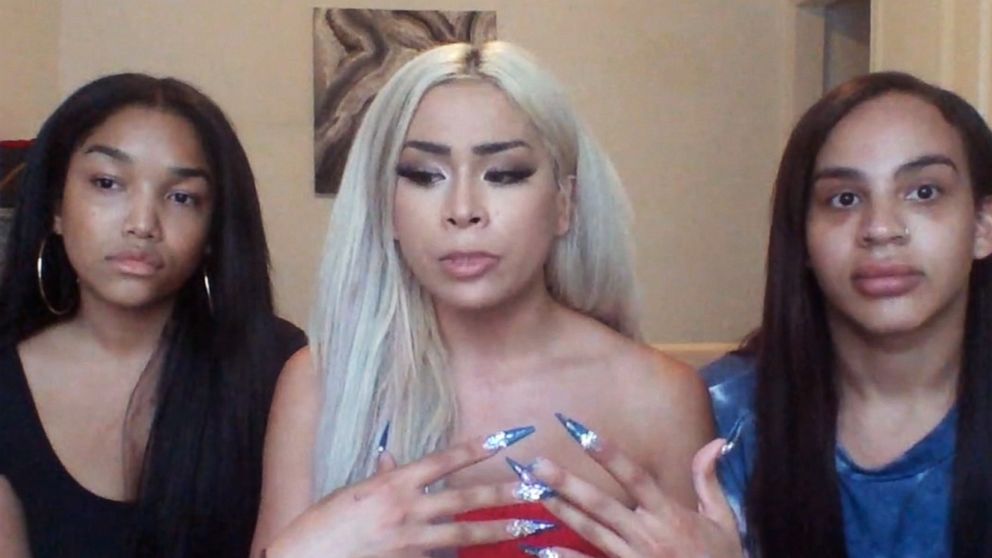What other cities can learn from LA in wake of violent anti-transgender attack
Monica Roberts, a 58-year-old transgender activist from Houston, travels around the country speaking at colleges and consulting with communities on how to better serve the transgender population. But no matter where she goes, her first mission is to call home to her elderly mother, who constantly fears that her daughter might be targeted in a hate crime.
With more than two dozen unsolved murders of transgender people so far in 2020, Roberts said her mother has good reason to be concerned.
Like many transgender women of color, Roberts said she feels more vulnerable than ever given the tumultuous political climate, but she found reason to celebrate this month when the Los Angeles Police Department captured a group of violent assailants who allegedly robbed and attacked three transgender women on Hollywood Boulevard as onlookers stood by.
At least 26 transgender or gender nonconforming people have been killed in the U.S. so far in 2020, with transgender women of color making up the bulk of those victims, according to data provided by the Human Rights Campaign.
The group reported 25 killings in 2019 and 29 in 2018, the most it had ever recorded in a year. There is no official track of the amount of non-fatal anti-transgender assaults.
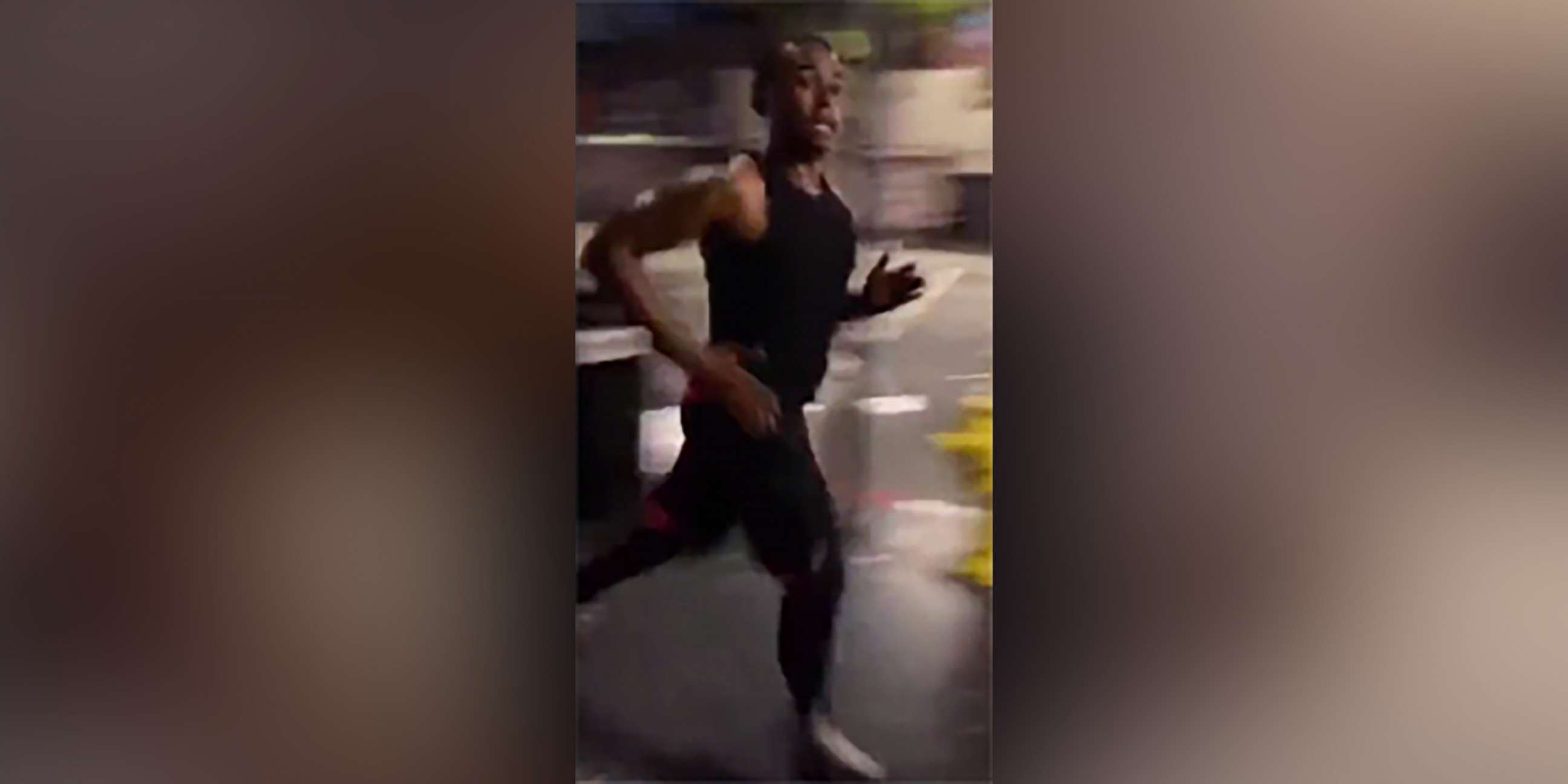
Members of the transgender community praised the LAPD for prioritizing the attack as a hate crime and apprehending the suspects within just three days. Many LGBTQ advocates said other cities and municipalities could learn a lot from Los Angeles and cities like it where lawmakers have vowed to protect members of marginalized communities, especially those who identify as LGBTQ.
"My heart broke when I saw the story out of Los Angeles, where you had people gleefully egging on the attackers while videotaping," Roberts, who travels often through her advocacy work and as a board member of the Dallas-based Black Trans Advocacy Coalition, told ABC News. "The transphobia that is going on in the black trans communities needs to stop and it needs to be called out immediately."
Roberts said she would like to see more action and activism from politicians.
"Kamala Harris cannot be the only voice calling it out. I need the Congressional Black Caucus calling it out. I need the NAACP calling it out. I need individual legislators in these areas, and council members calling it out," she added.
Attacked as onlookers joked and filmed
Social media users shared a video of the violent Aug. 17 attack in Los Angeles, showing a man yelling transphobic slurs at the women, allegedly robbing them and attacking one woman with a bottle, according to police.
Bystanders could be seen laughing and joking about the attack while filming it. The department described the primary suspect as a homeless person from the Hollywood area who outreach officers said they recognized from previous encounters.
The department said the city's deep ties with the LGBTQ community helped them to arrests the suspects Carlton Callway and Davion Anthony Williams, who were charged this earlier week.
Callway faces one felony count each of grand theft from the person of another, second-degree robbery, criminal threats, attempted second-degree robbery, assault by means of force likely to produce great bodily injury and battery with serious bodily injury.
Williams faces one felony count each of grand theft and assault with a deadly weapon, rideshare scooter.
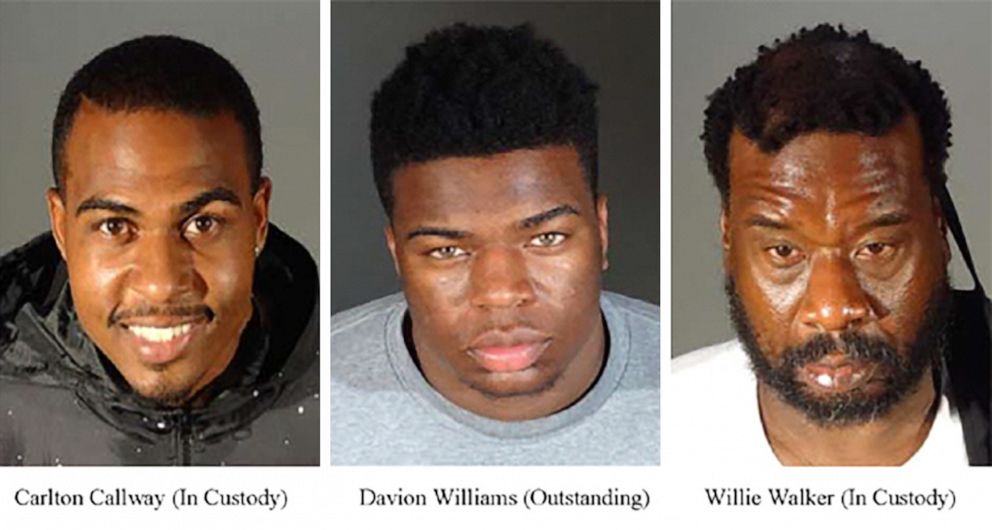
Los Angeles City Councilmember Mitch O'Farrell, who helped push for a full investigation into the incident, said the attack felt like "a sucker punch to all of us who believe in civilized behavior and humane treatment of one another."
"The transgender community, especially women of color, are so often marginalized, assaulted, and even murdered. It is an epidemic that can be seen across the country," O'Farrell said. "These women were in great distress and clearly becoming more injured as this attack carried through in those harrowing several minutes that we've seen on video."
"So, it's really important that we make arrests like this and I just want to send a signal to anyone who was in that crowd cheering … that is not behavior that is becoming of a resident of the City of Angels and that is the kind of behavior that will not be tolerated," he added.
Long history of progressive, gender-inclusive policies
LAPD officials told ABC News that the office of Assistant Chief Beatrice Girmala, the department's LGBTQ Outreach Coordinator, was instrumental in helping capture the suspects.
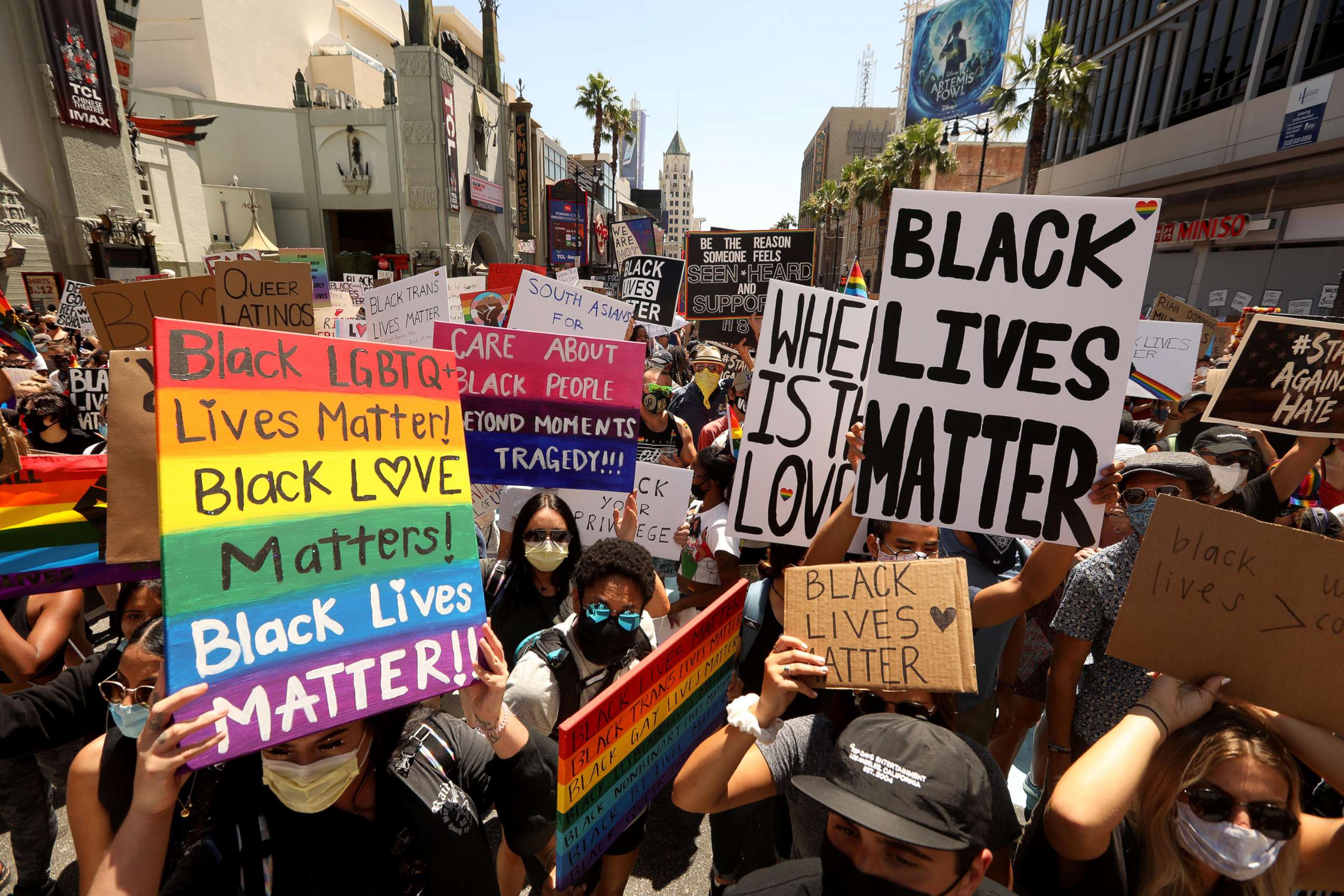
Girmala was also a big part of the department's 2017 Safe Place initiative, which declares participating brick-and-mortar establishments a safe haven for the lesbian, gay, bisexual and transgender community.
Modeled after a Seattle program that encourages engagement between police, local business owners and the LGBTQ community, the initiative allows businesses to post signs indicating that they are a "safe place" for anyone who might be seeking refuge from a hate crime or incident.
"Justice for all should mean just that. There should be no exception to that rule and there should be no marginalization to that rule," Girmala told reporters earlier this month when announcing the arrests. "But we can't arrive at justice unless we have the community working in partnership with us. And not just lip service to say this is community policing and not just to say that we are working together, but where we see the manifestation of those partnerships in a day like today."
She highlighted the mayor's Transgender Advisory Council and LAPD LGBTQ Working Group, an initiative launched in 2010 to create more culturally sensitive policies for the city's officers, when discussing some infrastructures that have helped the department crackdown on anti-transgender crime over the years.
Roberts -- who has been tracking pro-LGBTQ legislation for more than two decades and documenting transgender violence for her blog, Transgrio -- pointed to California as one of the more progressive states in the country when it comes to protecting transgender women.
"They did the right thing by opening an investigation. Instead of trying to sweep it under the rug or ignoring it, like many police departments do, they went after these folks," Roberts said. "It makes me angry because too many leaders are silent about this wave of violence that is being perpetrated by Black cis-gendered men in this community, aimed at predominantly Black trans women."
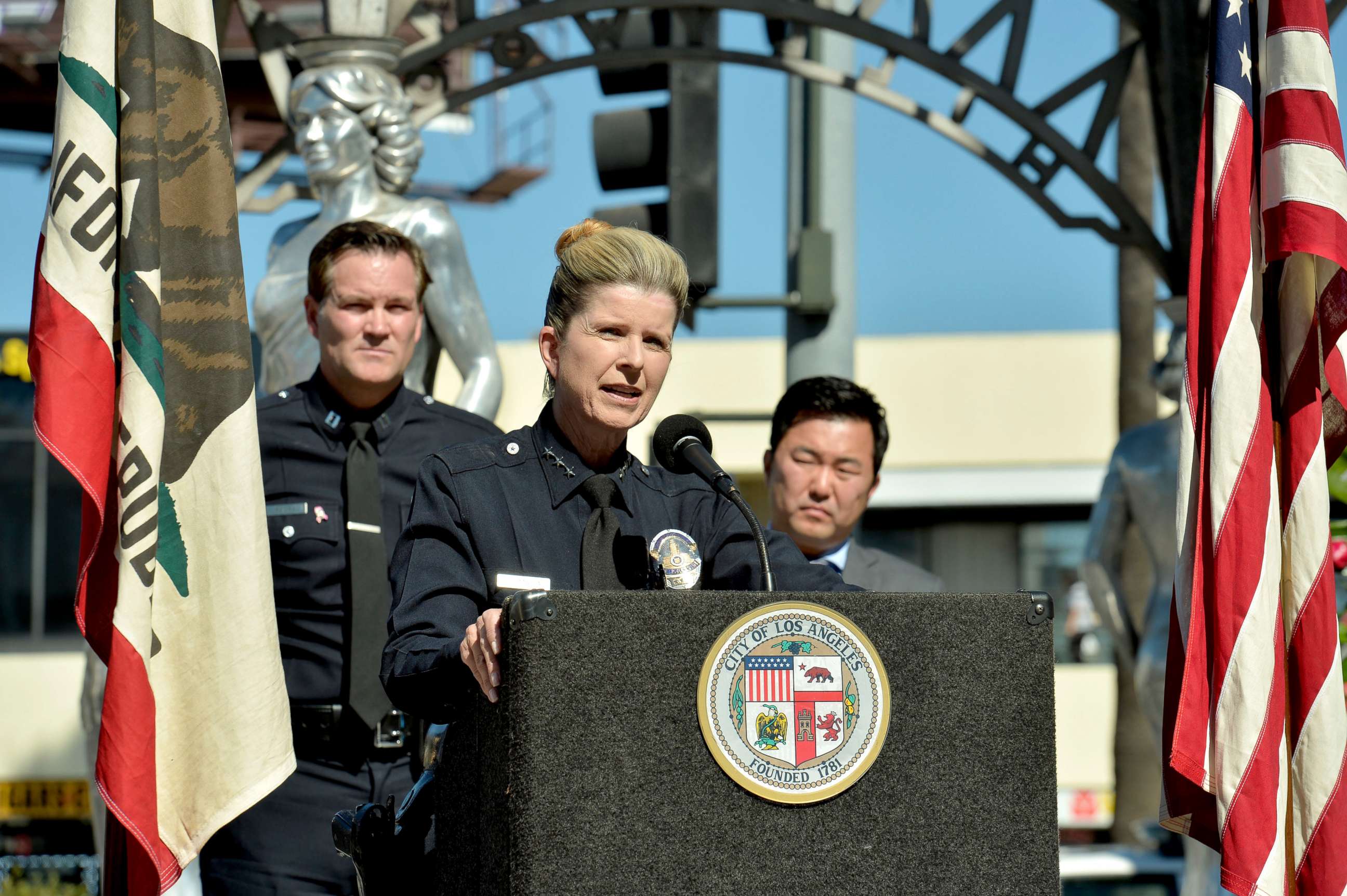
Danni Newbury -- an LGBTQ rights advocate and coordinator of the Office of LGBTQ Affairs at Union County, New Jersey -- agreed that California law makes it much easier to prosecute anti-transgender crimes. The state is one of few in the country that protects transgender people under local hate crime laws.
Protecting LGBTQ's most vulnerable
Many state hate crimes laws, including those in Texas, cover sexual orientation, but not gender identity, essentially leaving out people who identify as transgender or non-binary.
Newbury, who oversees New Jersey's first county office of LGBTQ services, said her home state has been working to make sure that law enforcement agencies have deep ties with the LGBTQ community, which makes it much easier when crimes inevitably happen. She said her office has been working with authorities to come up with plans on how to better engage and serve with transgender victims.
"We want to make sure that we have allies in positions of influence who really care about helping these vulnerable communities," Newbury said. "The first part is learning where we've gotten it wrong from the community and the second part is informing our organizations, our police academy, and our officers and police chiefs on how to get it right. Because we know, anecdotally, that it needs attention."
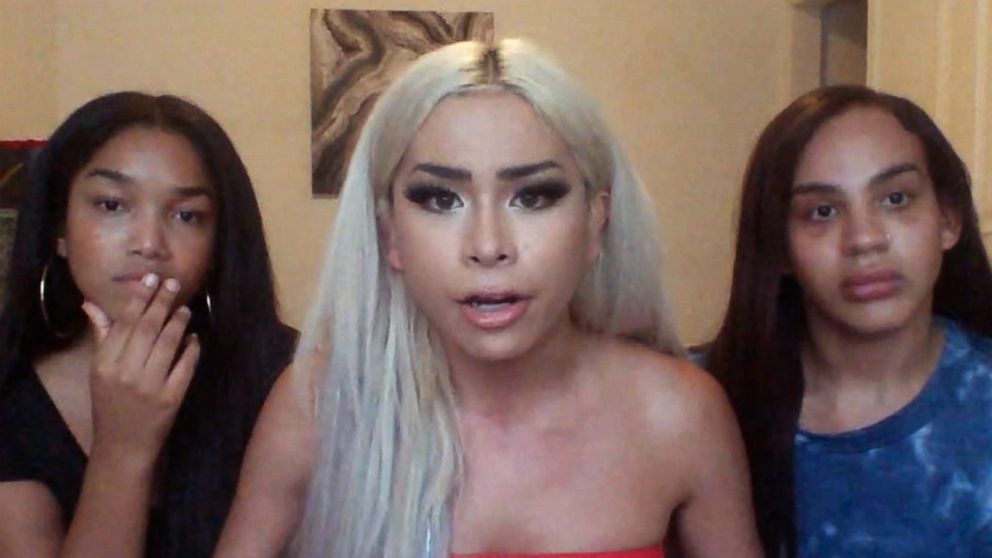
In New Jersey, advocates have been focusing on trans-inclusion and visibility in an effort to spread awareness and combat anti-transgender sentiments. For example, the Office of LGBTQ Affairs hosted a drag queen story hour as a way to bring the divide between parents in the wake controversy of school bathroom bills.
"It was simply a way to educate families that were already inclusive and to show others that there's no danger in something like Drag Queen Story Hour. It's about celebrating art and individuality," Newbury, who identifies as lesbian, said. "So a lot of our advocacy comes in the form of inclusive programming. It allows the community to participate at the level that they're comfortable and the more we move people toward inclusion and acceptance, the closer we are to progress."
Like California, New Jersey recently banned the so-called trans panic defense, the argument that a violent act was caused by the revelation of a victim's actual or perceived gender, gender identity, gender expression, or sexual orientation.
California became the first state to ban the defense in 2014 and a hand full of other states followed suit. "That's a problem because you're playing on hatred of trans folks as a defense in order to reduce the punishments for the people who perpetrate the crimes," Roberts said. "In other words you're blaming the victim for their murder. And because you have this perception out there that trans folks are going around deceiving people, a notion pushed by media and in Hollywood, the defense works time and time again."
